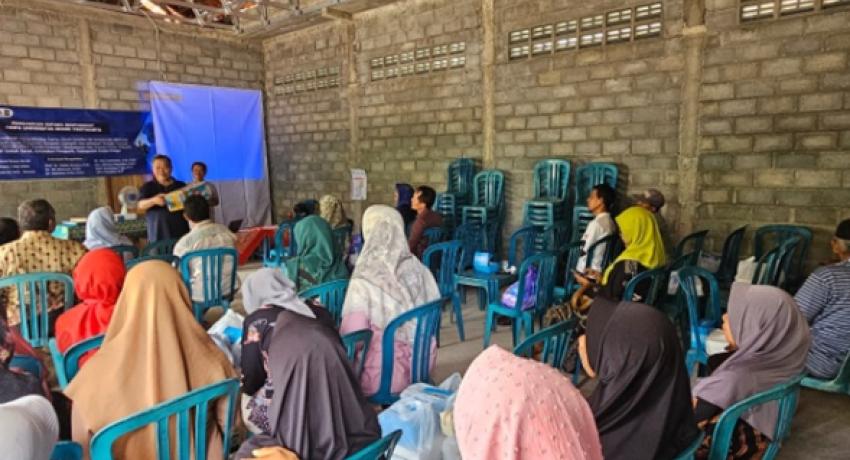in Dukuh Serut, Kulon Progo district.
The community service team of the Faculty of Mathematics and Natural Sciences UNY seeks to encourage sustainable organic waste management. One of the efforts comes through counseling activities on the utilization of Black Soldier Fly (Hermetia illucens) larvae as part of organic waste management and strengthening food security in Dukuh Serut, Kulon Progo district. in the activity held on May 1, 2024, there were 25 participants from the Women Farmers Group (KWT) Dukuh Serut.
"This program aims to provide training to KWT Dukuh Serut in developing an efficient organic waste management system using Black Soldier Fly as a decomposing agent. In addition, we also want to empower the community in managing the larval phase of the Black Soldier Fly which is rich in protein as a source of quality animal feed," said Dean of the Faculty of Mathematics and Natural Sciences UNY, Prof. Dr. Dadan Rosana, M.Si.
"We welcome UNY programs that will have a positive impact on the environment and society. We appreciate that the UNY team is trying to embrace the Women Farmers group in Dukuh Serut so that later it can encourage women to be more empowered and able to realize environmental independence and food security from the household level," said Panewu Anom Kapanewon Pengasih.
Ir. Suhandoyo, M.S. as the resource person introduced the holistic concept of organic waste management with the Black Soldier Fly, the utilization of BSF larvae in meeting the needs of sustainable animal feed, as well as BSF rearing and utilization techniques. Drs. Allesius Maryanto, M.Pd., one of the community service team members, added, "By adopting this approach, we not only reduce the amount of organic waste that pollutes the environment but also create a more economically sustainable source of animal protein."
The use of Black Soldier Fly larvae as a decomposing agent for organic waste has been proven effective in reducing the amount of waste that ends up in landfills. In addition, the protein-rich BSF larvae can also be a quality alternative feed for livestock, helping to increase the productivity of local farms. This event is an important first step in implementing environmental balance and food self-sufficiency in Dukuh Serut. With the collaboration between academics, local government, and the community, it is hoped that this program can serve as an example for other regions in facing the challenges of organic waste and food security.





